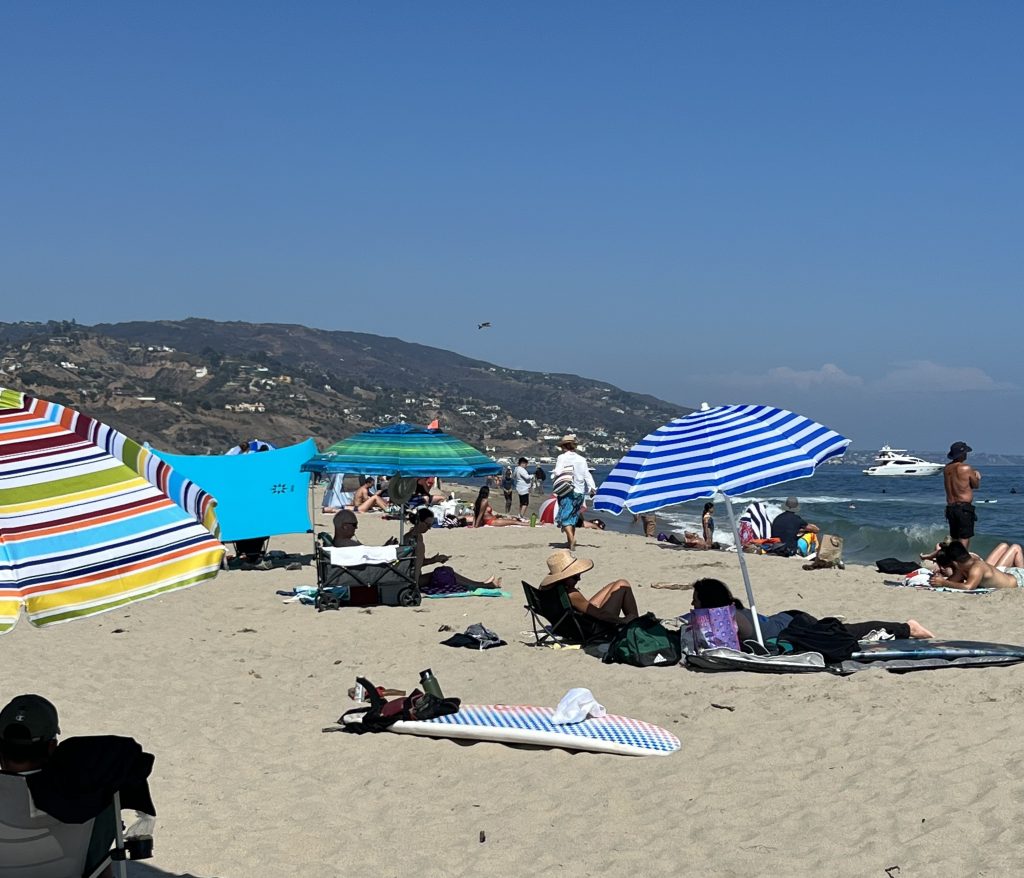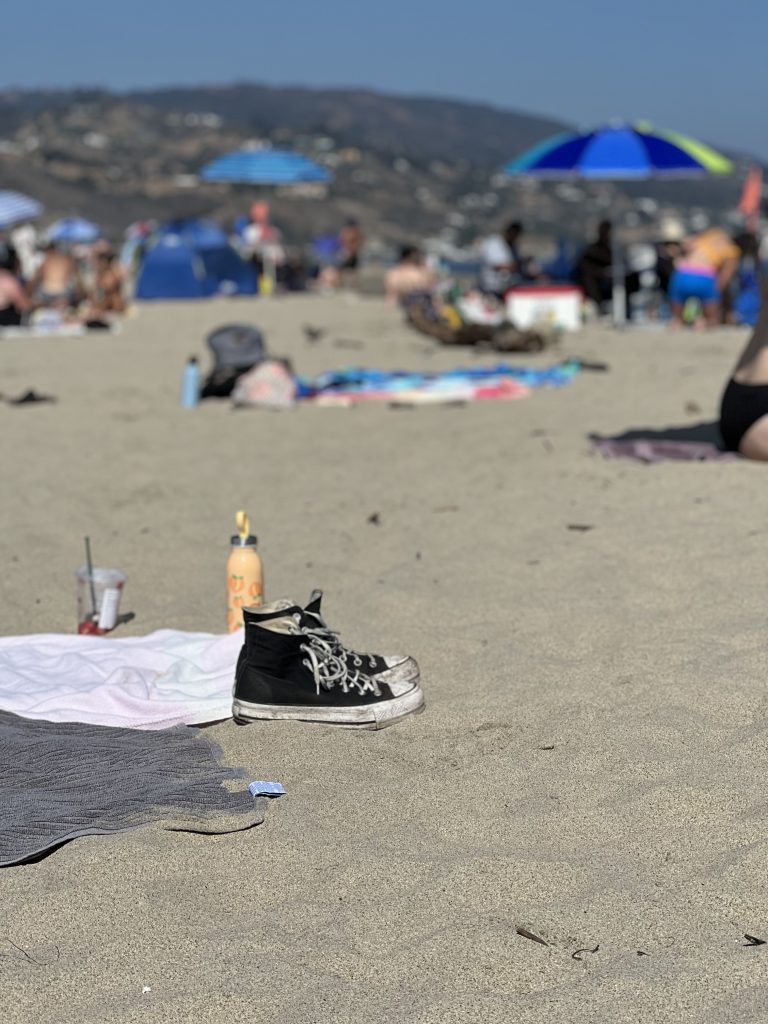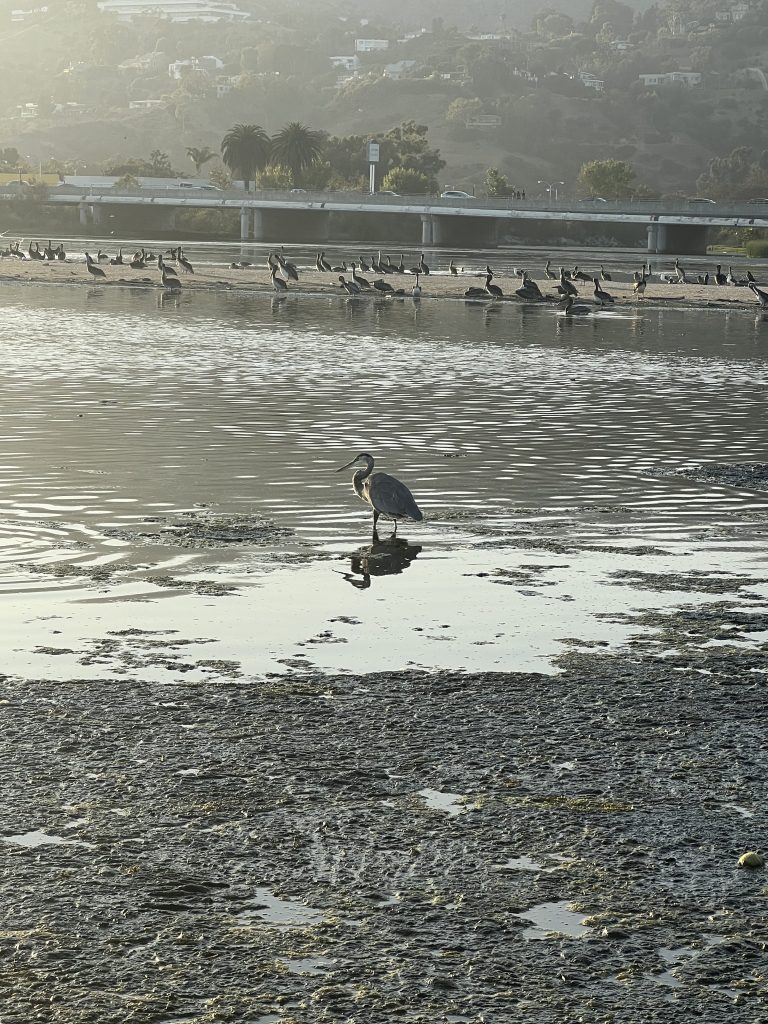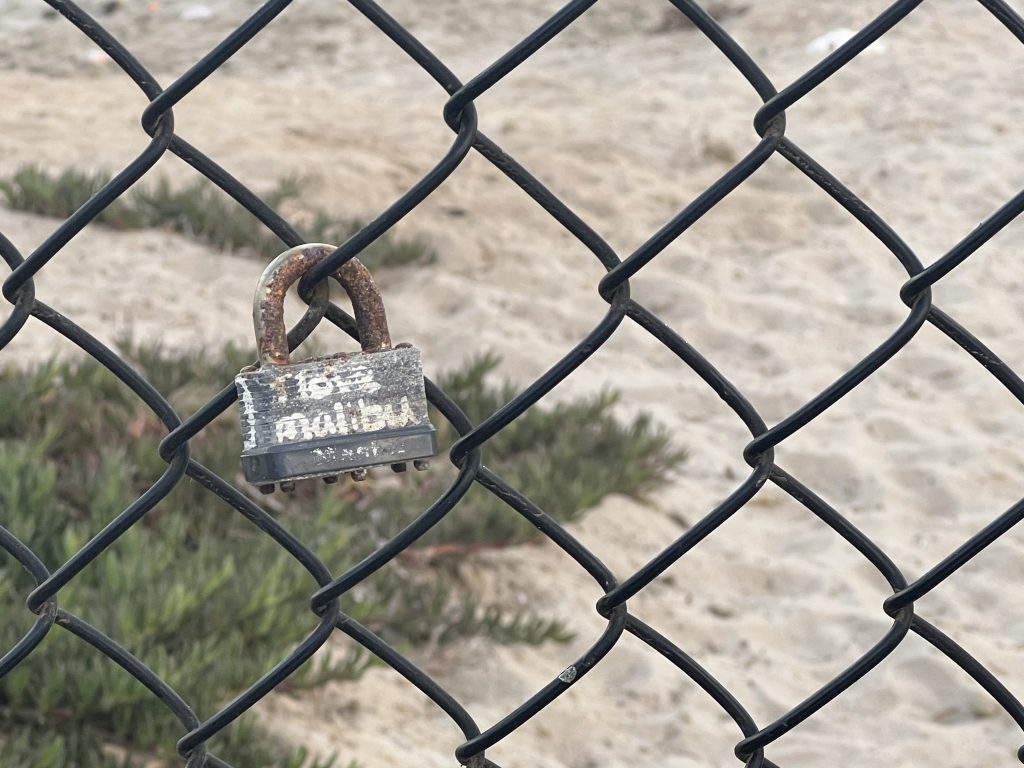Swimming in rough seas, it can be hard to find the shore.
You swim as hard as you can, as long as you can, and there it is, finally – the shore!
You’re back. You almost can’t believe it.
You walk on the beach and it’s all so glorious and such a relief.
Everything is beautiful, even the seaweed that’s washed up.
And then a sneaky thought sneaks its way in, according to its nature.
It holds the door open for another (with a mean laugh).
And walking on that shore you realize that you’re back to rough seas, in the salty ocean of your brain.
*
You try to think of where you might find some relief (since there’s no known cure for salty ocean brain.)
A voice of the newly dead whispers to you, and you listen…
From Now And Then, by Frederick Buechner (1926-2022):
”In a book called The Sacred Journey, I told the story of my life from its beginnings in the summer of 1926 to the point at which, some twenty-seven years later, I found myself about to enter Union Theological Seminary in New York for the by no means unwavering purpose of becoming a minister. I made no attempt in that book to tell the whole story. I left out lots of people who had been very important to me in favor of others who had never seemed especially important at all until I started thinking about them. I left out adventures I’d had. Except for occasional references, I left out pretty much the whole dimension of my life that had to do with matters like sex, money, travel, health, and, as it suddenly occurs to me now, movies, which I suspect have a great deal more to do with who we all of us are – especially those who, like me, grew up before television – than we commonly suppose. The technicolor extravaganzas and swashbuckling spectaculars of the late thirties, forties, fifties, the great World War II films, the comedies of Laurel and Hardy, W.C. Fields, the Marx Brothers – who can measure the profound effect that, for better or worse, they had upon us all while the bloom was still on them or how different confirmed movie-goers like me would have turned out, both as artists and as human beings, if we hadn’t grown up at the time of Les Enfants du Paradis, Rashomon, The Wizard of Oz, and Casablanca? But, be all that as it may, I focused instead on those past events which, although I hadn’t been aware of it at the time, I could more clearly see as having set the stage for, to have foreshadowed, my becoming a Christian and deciding to go to seminary mainly because I could think of any other move dramatic and official enough to commemorate such an unexpected turn of events in my life. In the pages that follow, what I set out to do is simply to bring the story up to date. There is nothing like talking about yourself to loosen your tongue.
There is something more than a little disconcerting about writing your autobiography. When people have occasionally asked me what I was working on, I have found it impossible to tell them without an inward blush. As if anybody cares or should care. As if I myself should even care that much. Like showing my baby pictures to strangers. And there is something a little geriatric about it, too – an old codger putting his affairs in order as the end approaches, marking his prized possessions so his heirs won’t squabble over them later, writing names on the backs of old photographs so someday somebody will be able to tell who the people were. If anybody should ever be interested.
But I do it anyway. I do it because it seems to me that no matter who you are, and no matter how eloquent or otherwise, if you tell your own story with sufficient candor and concreteness, it will be an interesting story and in some sense a universal story. I do it also in the hope of encouraging others to do the same – at least to look back over their own lives, as I have looked back over mine, for certain themes and patterns and signals that are so easy to miss when you’re caught up in the process of living them. If God speaks to us at all other than through such official channels as the Bible and the church, then I think that he speaks to us largely through what happens to us, so what I have done both in this book and in its predecessor is to listen back over what has happened to me – as I hope my readers may be moved to listen back over what has happened to them – for the sound, above all else, of his voice.
Because the word that God speaks to us is always an incarnate word – a word spelled out to us not alphabetically, in syllables, but enigmatically, in events, even in the books we read and the movies we see – the chances are we will never get it just right. We are so used to hearing what we want to hear that it is hard to break the habit. But if we keep our hearts and minds open as well as our ears, if we listen with patience and hope, if we remember at all deeply and honestly, then I think we come to recognize, beyond all doubt, that, however faintly we may hear him, he is indeed speaking to us, and that, however little we may understand of it, his word to each of us is both recoverable and precious beyond telling. In that sense autobiography becomes a way of praying, and a book like this, if it matters at all, matters mostly as a call to prayer.”
*
*
Frederick Buechner, Rest In Peace (obituary): https://www.nytimes.com/2022/08/15/books/frederick-buechner-dead.html
Really beautiful article on Buechner by David Brooks:
Photos from a beach I’m visiting for the first time…











He will certainly rest in peace. His writing is so beautiful and questioning. His Sermons in the Dark is a favorite.
I am embarking on a journey of reading a great deal of his work… this will take a while. It is the right moment for me. Sermons in the Dark is my next stop, thanks to your recommendation. Xoxo
It’s Secrets in the Dark. I always say sermons because that’s what these were!
What an inspiration and truth teller through his stories. Also appreciate the David Brooks’s notation about Beuchner. Very interesting interpretation.
I am in awe and hungry for more. Xoxo
Jennifer thank you for this beautiful piece today. He was an inspired voice and Listening to your Life is something I return to often. I love David Brooks on Buechner: “Faith…. sensing a presence not buying an argument.” Wonderful.
So wonderful to hear from you this morning, BK… I am not surprised that you love Buechner too. Xoxo
I love your analogy of the salty ocean brain… Such beautiful writing…I can almost smell the ocean breeze and taste the brine of life being tossed at sea. Your pictures of the ocean and beach remind me of lines from an old hymn “…on Christ the solid rock I stand, all other ground is sinking sand…”
I love that hymn! And love you, dear Marina. Xoxo
Buechner and Brooks have been at the top of friends with meaningful messages, My thanks to you !
Absolutely!! Xoxo
Such a time for us all to listen to our lives and each other. Godspeed sweet friend!
Well said, dear Lawrence. Xoxo
Jennifer,
I was not surprised but heartened by your post today. I have read “Listening to Your Life” almost every day for 28 years and each time something new emerges. I have felt gut-punched since the news of his death. He had so many hematological references and I kind of feel as if I have bled out just knowing we do not share earthly soil. And so, thank you. The image of the beach and his sun-drenched hair in the photographs seemed just perfect for the day.
May your seas be calm tonight, my friend, as you look down on us with full but heavy hearts.
Rebecca, it is a beautiful thing that you have read “Listening to Your Life” each day for 28 years. I am on my first trip round the sun with it, and I don’t plan to ever put it down. Xoxo
He was so deep yet accessible, poetic and pragmatic. His “Dwarves in the Stable” pretty much walked me through and out of a dark and scary place with one of my children.
Thank you for this post and David Brooks’s obit. Had not seen it.